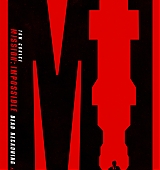BERLIN (Reuters) – Tom Cruise has defied expectations and won favorable reviews from German critics for his portrayal of a Prussian army officer who tried to assassinate Hitler in 1944 in the Hollywood film “Valkyrie.”
German reviewers who were initially highly suspicious have warmed to the film, describing it as a serious work, and Cruise has overcome unease about his suitability for the role.
“‘Valkyrie’ is neither scandalously bad nor the event of the century. Neither is it the action thriller we feared, but it is a well-made and serious film,” said public broadcaster ZDF.
“Cruise plays his part decisively, coolly — a solid performance, though he won’t have a sniff at an Oscar.”The Hollywood actor plays Colonel Claus Von Stauffenberg, who planted a briefcase bomb under a table at Hitler’s military headquarters in eastern Prussia on July 20, 1944. The heavy wooden table saved Hitler, who suffered only minor injuries.
Stauffenberg was executed the same night with his co-conspirators and his legacy helps ease the burden of guilt about World War Two and the Holocaust Germans still endure.
FEARS UNFOUNDED?
Initially, Germans baulked at the prospect of Cruise, star of blockbusters such as “Top Gun,” playing Stauffenberg. Stauffenberg’s son even called on Cruise to “keep his hands off my father” and go home.
Many Germans objected to the actor’s ties to Scientology, the movement founded in the 1950s by science fiction writer L. Ron Hubbard, and Berlin made it difficult for the crew to film in the Bendlerblock building and courtyard where Stauffenberg was shot dead.
Germany does not recognize Scientology as a religion and regards it as a cult masquerading as a church to make money. Scientologists reject this view.
Valkyrie, directed by Bryan Singer, opened in the United States on December 25 and fared better than skeptics had predicted, reaching No. 4 in the North American box office ratings for the three-day weekend starting December 26.
Before its German release in January, some commentators said Cruise may help to boost the country’s image by taking the tale of Stauffenberg to a broader audience.
Frank Schirrmacher, co-publisher of the Frankfurter Allgemeine Zeitung, said Cruise’s depiction would change the image the world has of Germans.
In the ZDF review, German director Florian Henckel von Donnersmarck, whose “The Lives of Others” won a foreign language film Oscar, described the casting as a stroke of good fortune.
“Germany’s hope is called Tom Cruise.”
The Koelner Stadt Anzeiger added: “(The fear that) the myth of the German resistance would be put through a Hollywood filter has turned out to be wrong and prejudicial. On the contrary, the American origin of this film is its biggest advantage.”
The coverage, however, was not all favorable.
“The film is well-crafted, no explosive, loud war drama but a calm, chronological tale … the main weakness is Cruise himself, who appears in almost every scene but is stiff,” wrote the Badische Zeitung.
(Source: Yahoo! News)






























